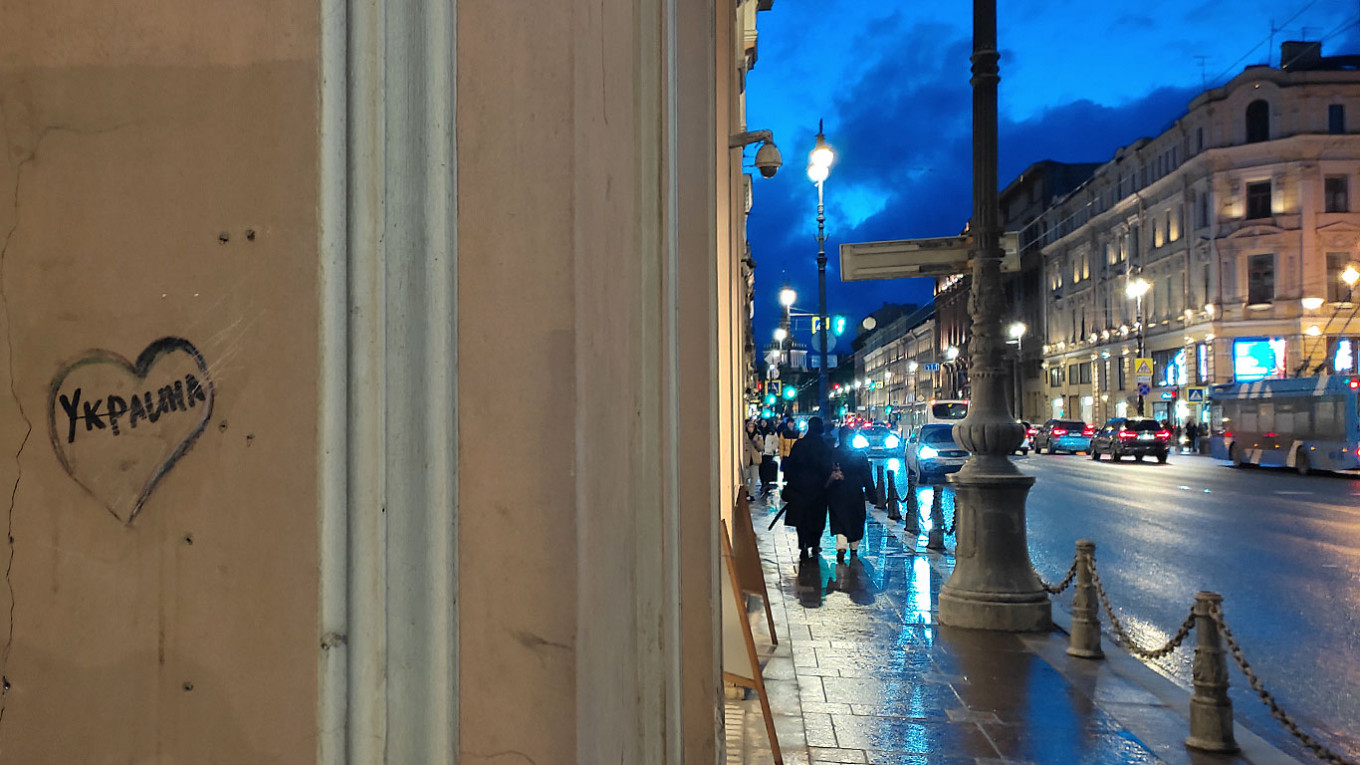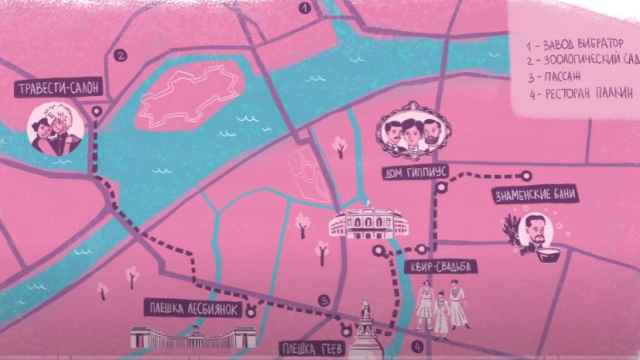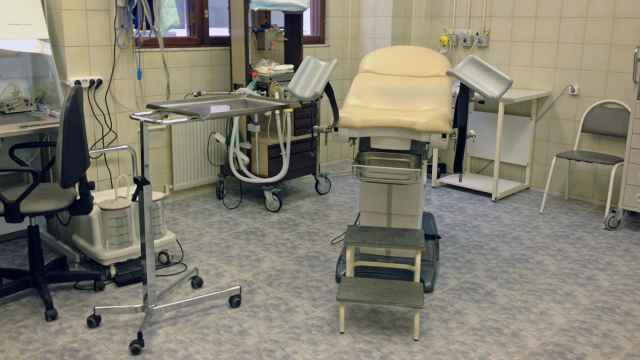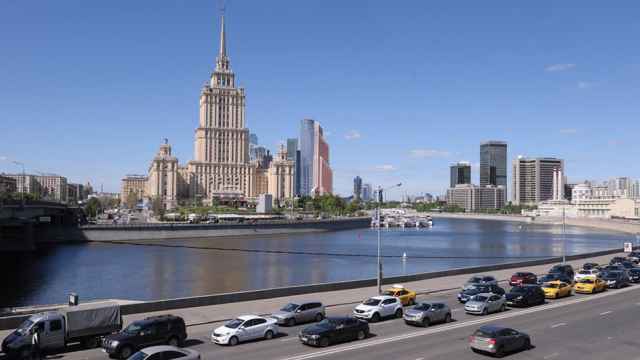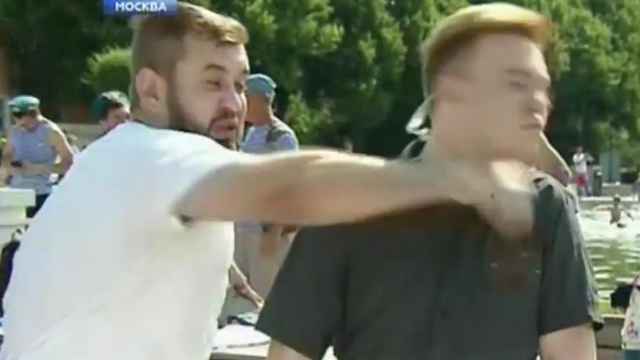The bustling center of downtown Moscow that was once full of shoppers and tourists is quieter and emptier since Russia’s invasion of Ukraine.
In the elite GUM shopping mall on Red Square, outlets for Western designer brands like Fendi and Louis Vuitton have shuttered because of corporate opposition to the war. Clothes, jewelry and other goods can still be seen inside the locked shops. But the mall’s nearly vacant corridors are still brightly lit and soundtracked by loud music.
Fifty days after Russia launched its invasion of Ukraine, shopping streets like Stoleshnikov Lane are also eerily quiet, with nearly all of their famous brand stores closed — and few pedestrians.
“In the first days of the war, I went to the [Moscow] city center quite a lot,” said Alina, a young woman from Moscow who requested anonymity. “I noticed that almost nobody on the metro was smiling. There was this tense, depressing atmosphere. Everyone was in a sort of shock.”
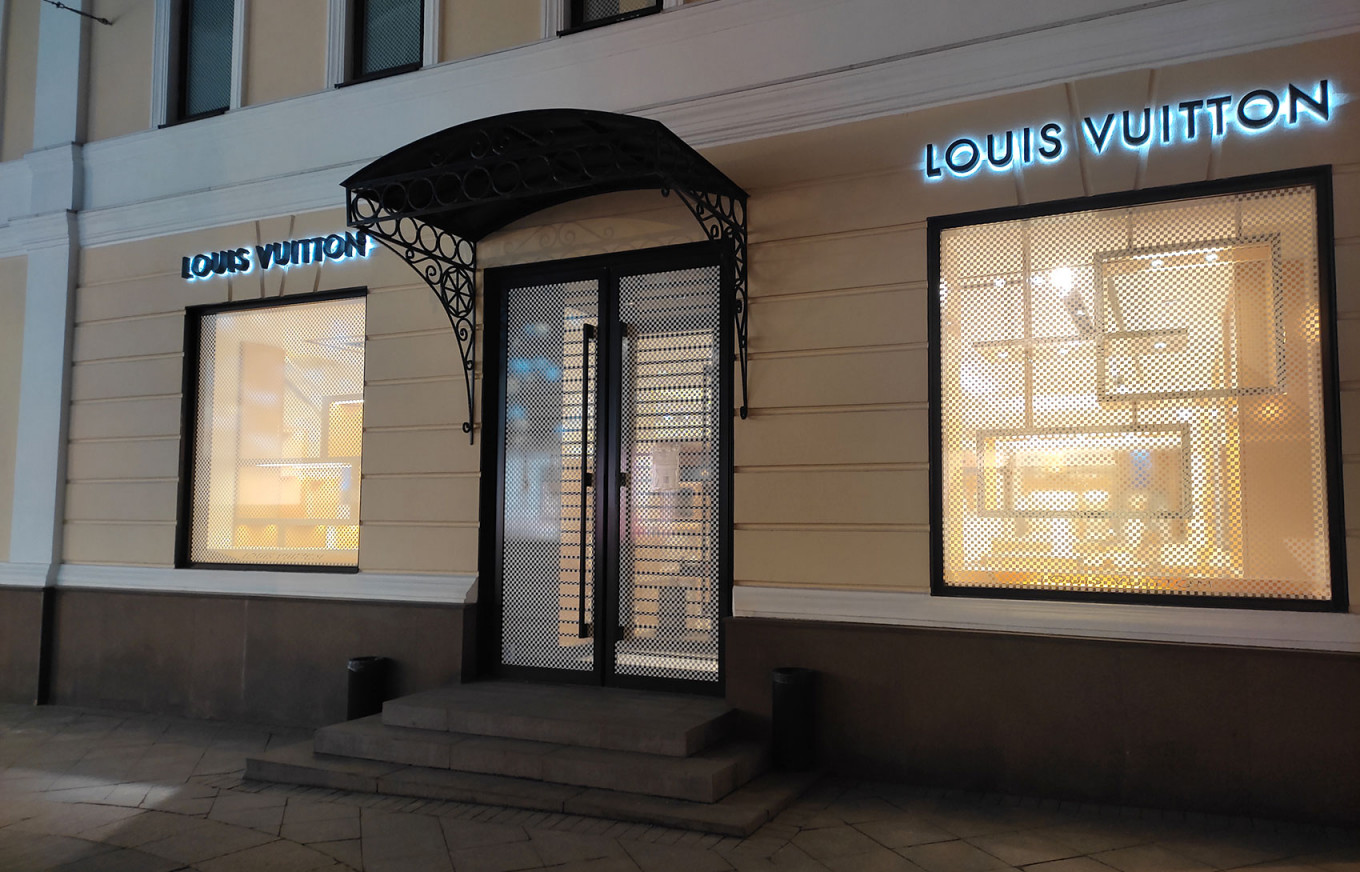
About 500 foreign companies have left Russia since the beginning of the invasion, and that list grows almost daily.
There is yet more emptiness in supermarkets and grocery stores.
Sugar disappeared from Russian grocery store shelves in the weeks after the invasion, and there were shortages of some foods, like buckwheat, and women’s hygiene products. While sugar is now mostly available again — albeit at a higher price — items like women's hygiene products and vegetables are still absent or partially absent from shelves.
Fearing rising prices and import bans, many Russians also started buying electronic goods, clearing out television sets from many shops.
The last time Russian electronics shops experienced such unprecedented demand was in 2014, when the country was hit with Western sanctions and the currency collapsed following Moscow’s annexation of Crimea and support for rebels in eastern Ukraine.
Another visible change in Russian cities and towns has been the emergence of so-called “Z-culture.” The letter Z, first seen painted on Russian military vehicles taking part in the invasion, has become a symbol of support for Russian troops in Ukraine.
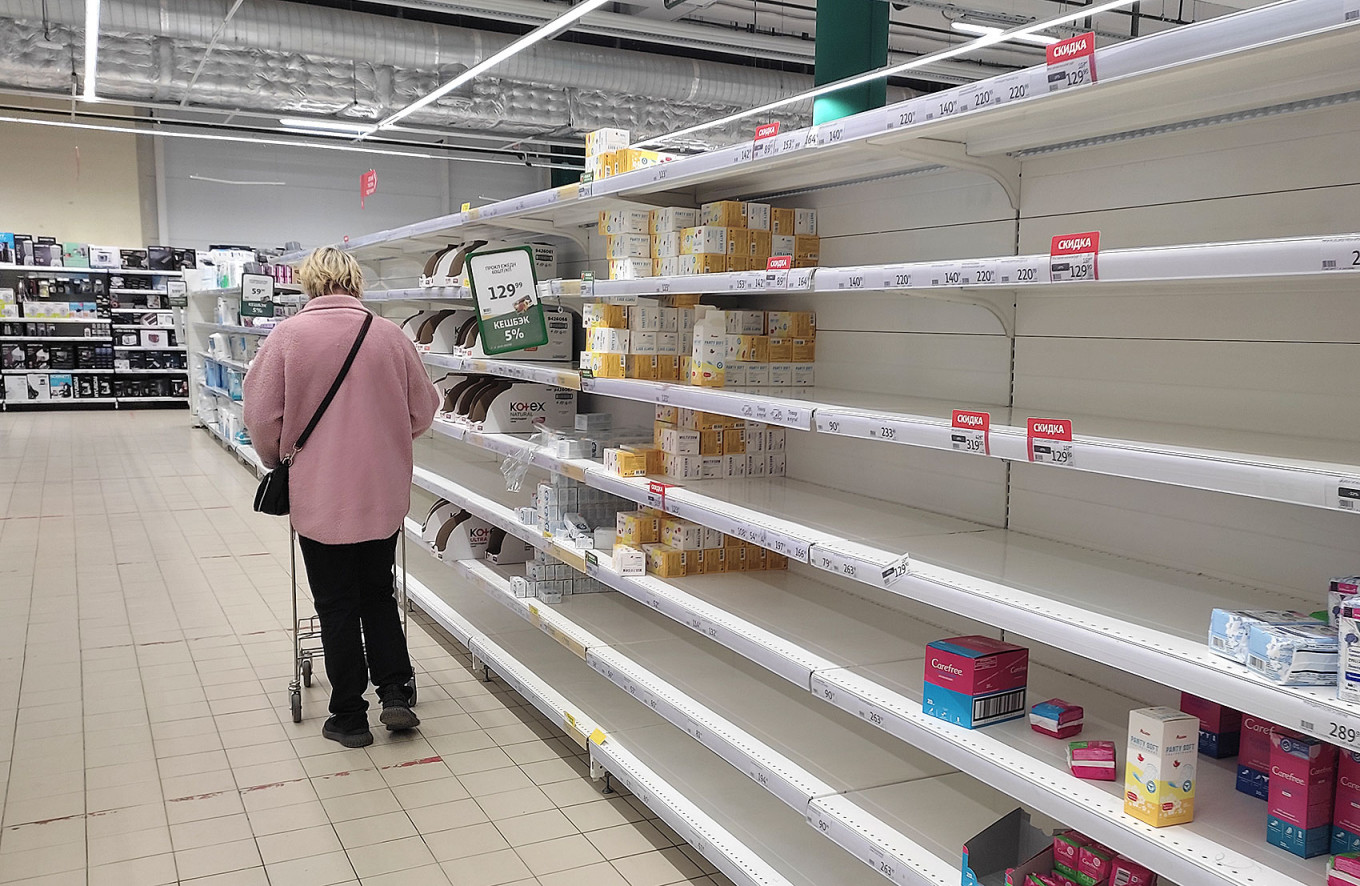
One of the largest Z displays in downtown Moscow can be found at the Oleg Tabakov Theater near the Chistye Prudy metro station. The three floors of the building’s facade are covered by a Z banner, which is colored orange and black after the St George’s ribbon, a popular military symbol. The head of the theater, prominent actor Vladimir Mashkov, is a longstanding supporter of Russian President Vladimir Putin.
“I’ve got no desire to go to the city center,” Moscow resident Karina told The Moscow Times. “I don’t want to see the giant Z on the theater wall.”
The infamous Zs are also displayed in the Moscow and St. Petersburg metro systems, where oft-seen advertisements read: “Z. We don’t leave our people behind.” They also appear on cars, trucks and lorries as well as in apartment windows.
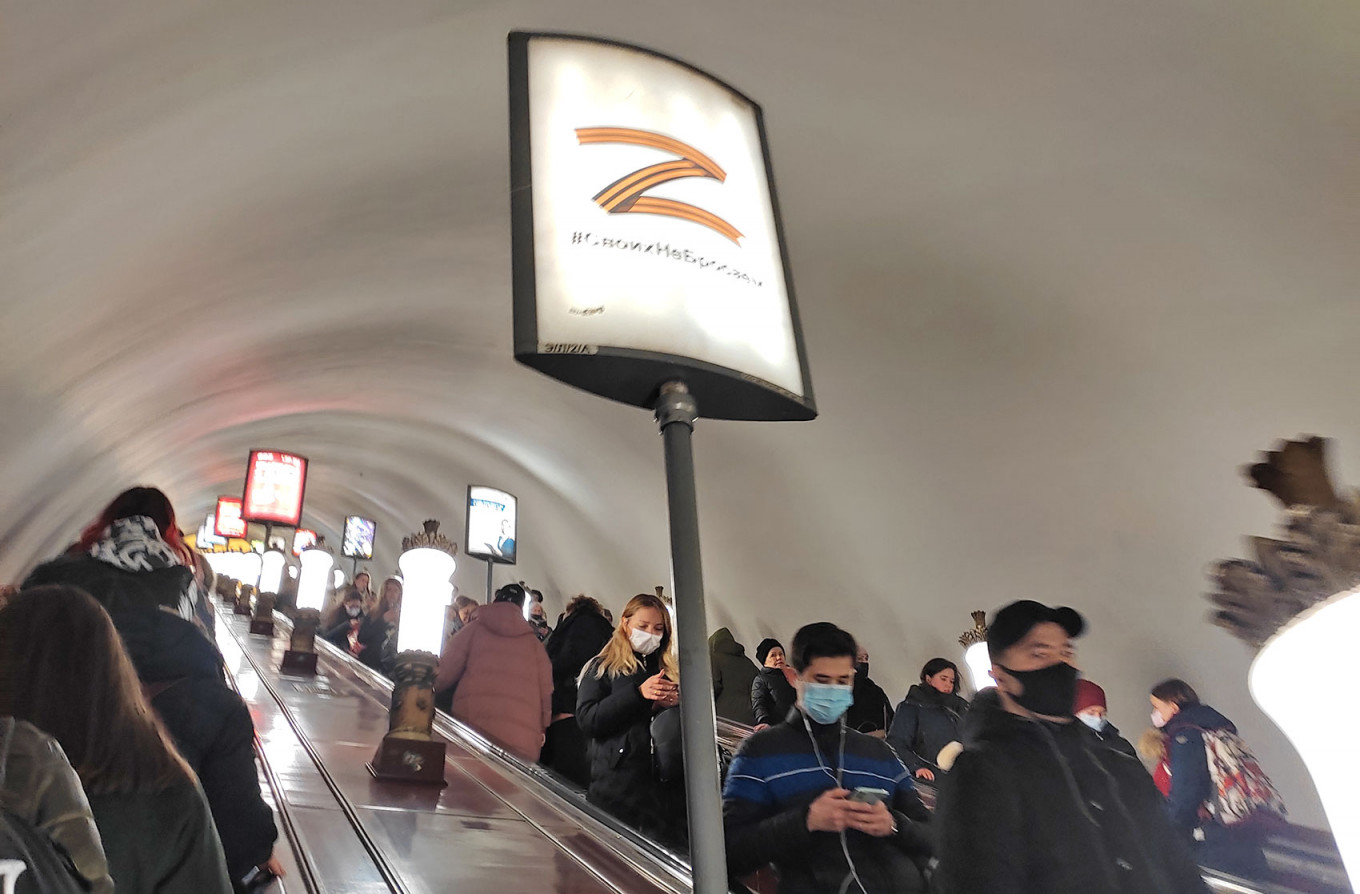
“I found it surprising that Z-marked vehicles usually turned out to be lorries. That means it is likely to be an organized effort by some companies,” said Muscovite Alina.
Support for the invasion is even more evident in small towns. On a recent visit to Kronstadt, the Russian Navy’s hometown outside St. Petersburg, there were Russian flags hanging at almost every pedestrian crossing and Z signs were far more common than in Moscow. At a local kindergarten, every other window was covered with a large Z.
In the immediate aftermath of the invasion, anti-war protests were commonplace in major cities across Russia.
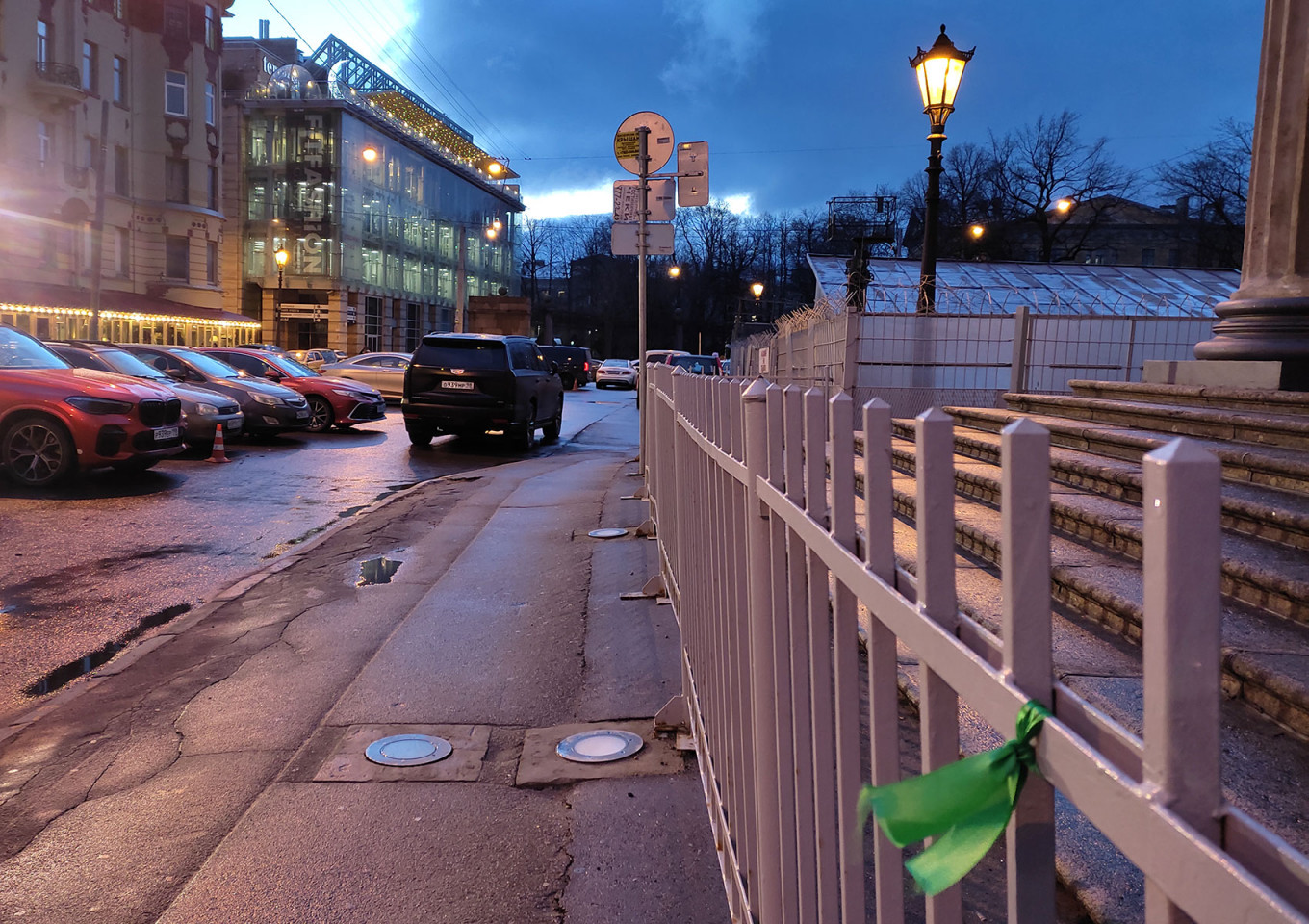
About 5,000 people were detained across Russia during anti-war protests on March 6 — the highest number of detentions in a single day since the collapse of the Soviet Union. In total 15,428 Russians have been arrested at anti-war demonstrations since the beginning of the invasion, according to protest-monitoring group OVD-Info.
“When you had marches for peace, you could at least march with a banner,” longtime activist Yelena Osipova, 76, told The Moscow Times, referring to the anti-war demonstrations of 2014. “[But] everybody is afraid now, nothing is being allowed.”
Amid a growing police crackdown, public expressions of opposition to the war have slowed to a trickle — singular acts of defiance amid a wider silence.
A man was detained next to the Kremlin this week for holding up a copy of Leo Tolstoy’s “War and Peace.” Others have been arrested for holding up blank pieces of paper, packages of food, or even a bank card.
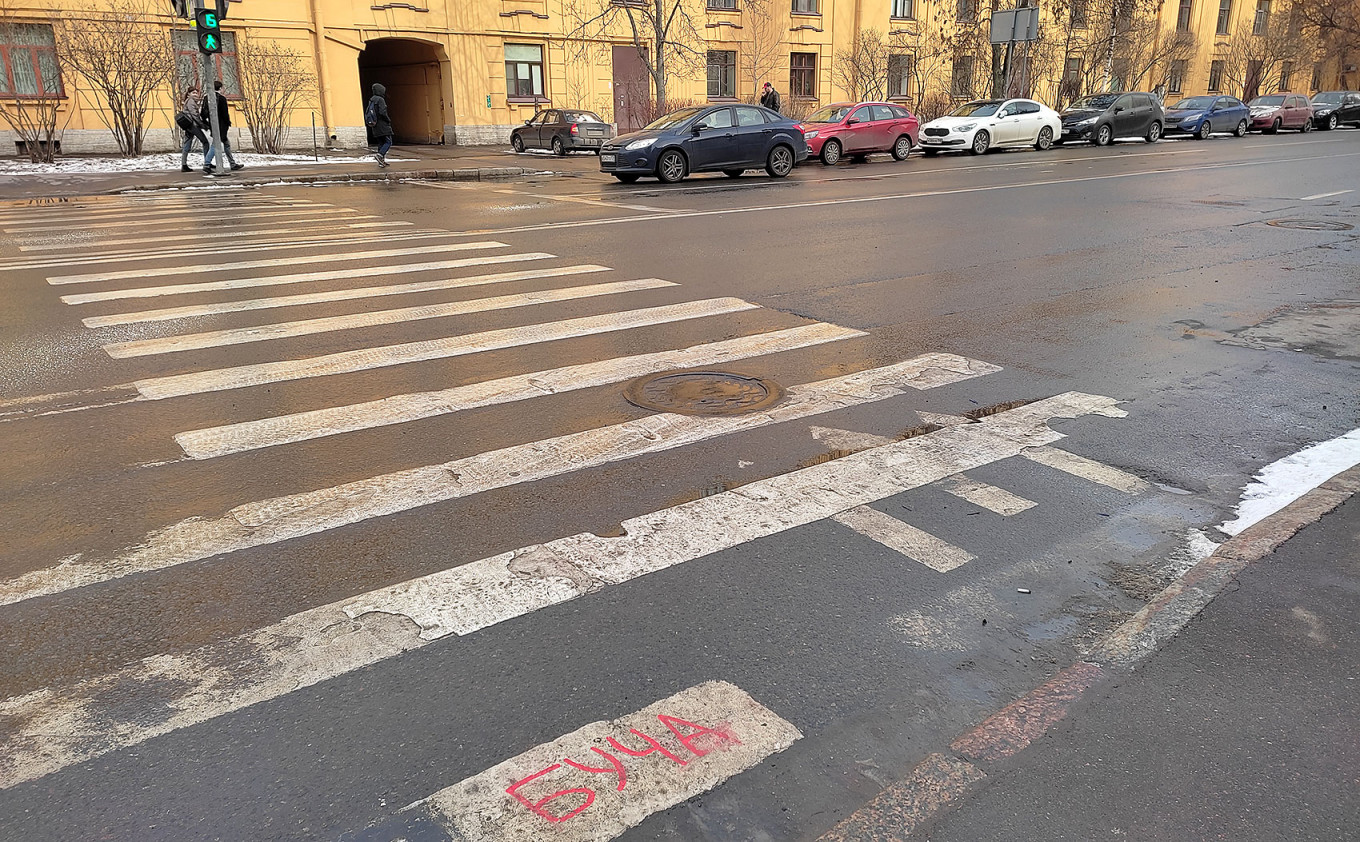
In St. Petersburg, the most obvious sign of dissent has been a proliferation of green ribbons — symbols of opposition to the war in Ukraine — that are tied to lanterns, fences, statues and buildings. Protest graffiti is also common.
When evidence emerged of atrocities apparently committed by the Russian army in the Ukrainian town of Bucha, a Russian activist laid face down on Moscow’s most famous streets with his hands tied, echoing the images of Ukrainian civilians believed to have been killed in summary executions.
Red Square, Russia’s main tourist attraction, was unusually empty on a recent evening. At the beginning of the invasion, protesters shouting “No to war” played cat-and-mouse with police officers nearby. But as the war grinds toward its third month, protesters and police alike have disappeared from the square.
A Message from The Moscow Times:
Dear readers,
We are facing unprecedented challenges. Russia's Prosecutor General's Office has designated The Moscow Times as an "undesirable" organization, criminalizing our work and putting our staff at risk of prosecution. This follows our earlier unjust labeling as a "foreign agent."
These actions are direct attempts to silence independent journalism in Russia. The authorities claim our work "discredits the decisions of the Russian leadership." We see things differently: we strive to provide accurate, unbiased reporting on Russia.
We, the journalists of The Moscow Times, refuse to be silenced. But to continue our work, we need your help.
Your support, no matter how small, makes a world of difference. If you can, please support us monthly starting from just $2. It's quick to set up, and every contribution makes a significant impact.
By supporting The Moscow Times, you're defending open, independent journalism in the face of repression. Thank you for standing with us.
Remind me later.


